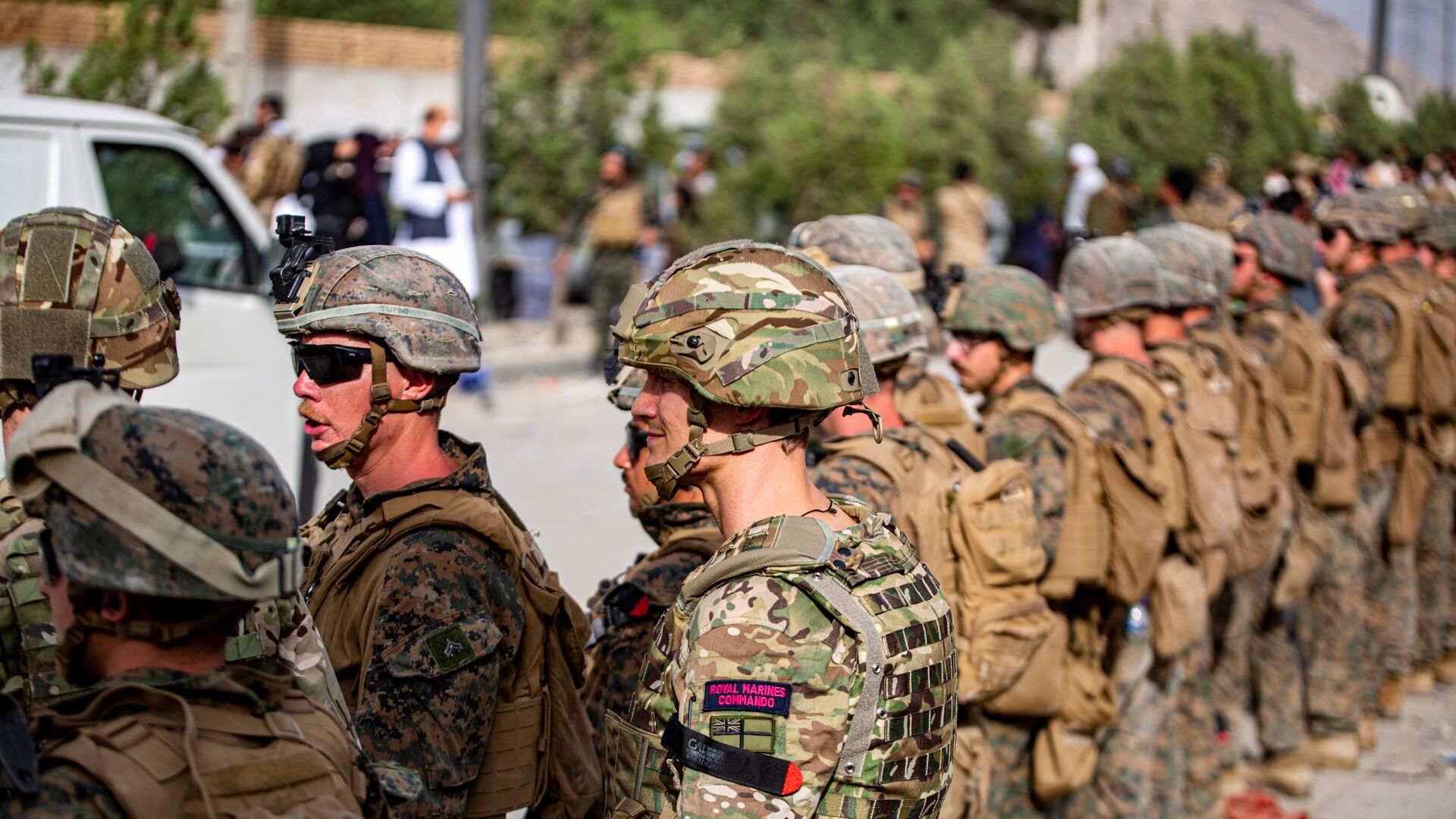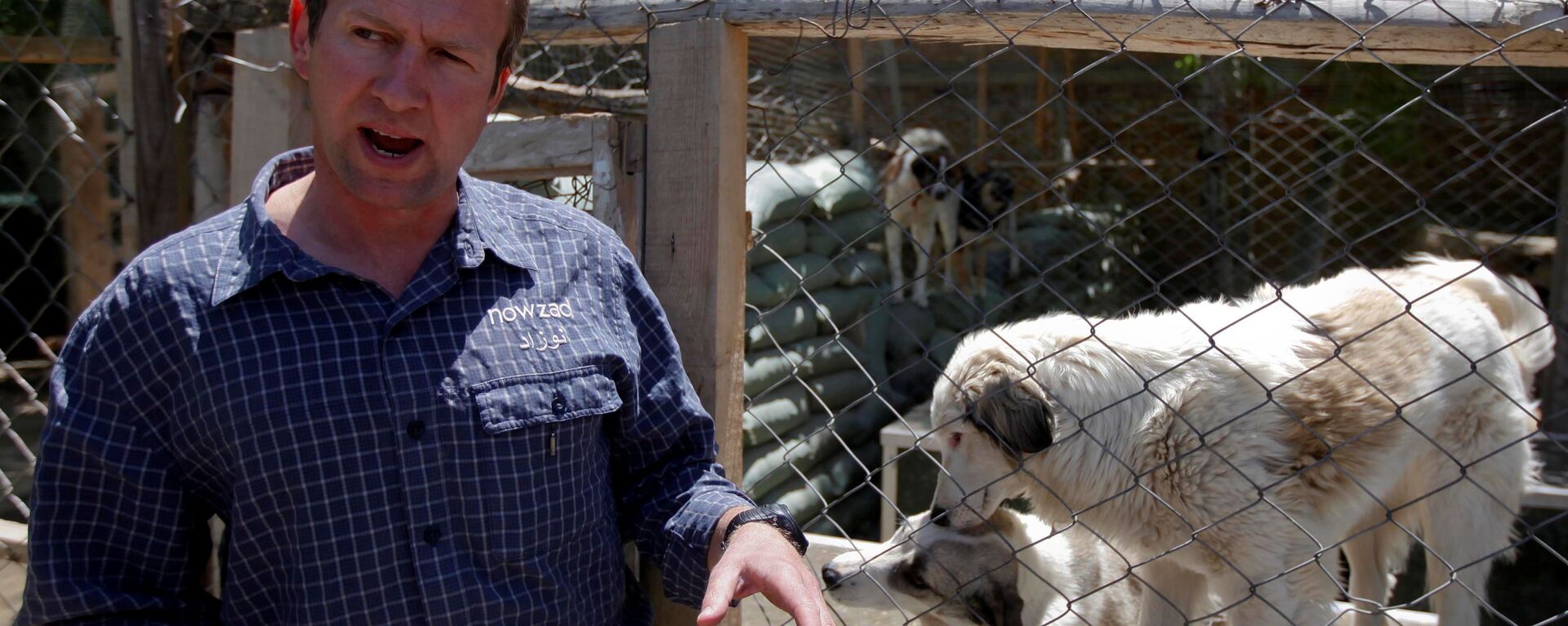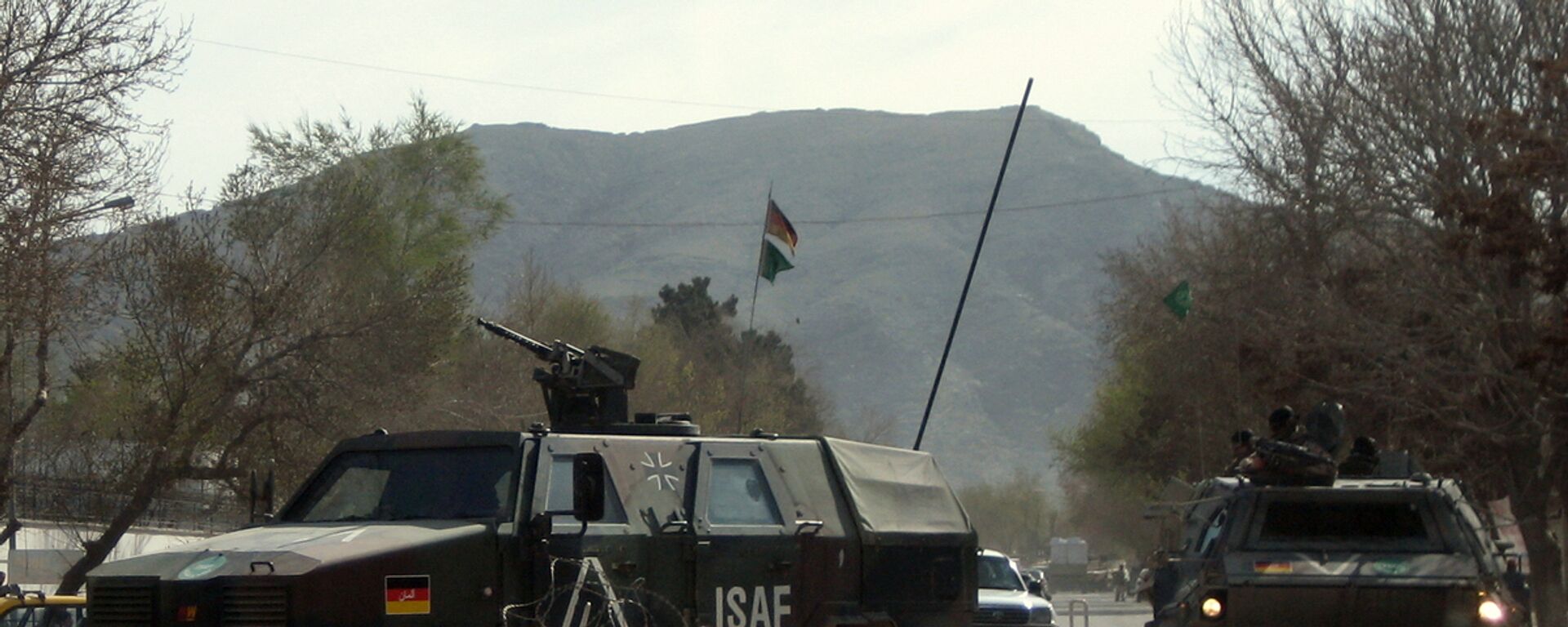In Possible Dig at Biden, Johnson Mentions ‘Remorseless Deadline’ for Kabul Evacuations
10:27 GMT 29.08.2021 (Updated: 11:47 GMT 29.08.2021)

© REUTERS / US MARINES
Subscribe
Britain and other US allies have offered muted criticism of the Biden administration’s firm 31 August deadline for evacuations from Afghanistan in the aftermath of the Kabul government’s sudden collapse. At the same time, NATO has admitted that the alliance could not stay deployed in the war-torn country without help from the US behemoth.
British Prime Minister Boris Johnson appeared to take a swipe at London’s Washington allies on Sunday in an address dedicated to the end of the UK’s military operations in Afghanistan.
“It is at the darkest and most difficult moments that the Armed Forces of this country have always performed their greatest and most astonishing feats. As I speak, Sir Laurie Bristow, Her Majesty’s Ambassador, has finally boarded one of the very last flights from Kabul. All remaining soldiers, diplomats and civil servants have now left, it’s the culmination of a mission unlike anything we’ve seen in our lifetimes,” Johnson said, in a video address from 10 Downing Street on Sunday.
On the end of military operations in Afghanistan. pic.twitter.com/sOeXjeYtIr
— Boris Johnson (@BorisJohnson) August 29, 2021
Praising British troops and officials, who he said had “worked round the clock to a remorseless deadline in harrowing conditions,” BoJo stressed that these individuals had “expended all the patience and care and thought they possess to help people in fear for their lives,” and carried on working even in the aftermath of Thursday’s terrorist attack on the airport.
“Though we would not have wished to leave in this way, we have to recognise that we came in with the United States, in defence and support of the United States and the United States military did the overwhelming bulk of the fighting,” the prime minister added. “And though we now leave with the United States, we will remain represented in the region: we’re doubling our humanitarian assistance, development assistance this year to 286 million pounds.”
Johnson said the UK would consider diplomatic recognition for the Taliban if they meet certain conditions, including the provision of safe passage for those who wish to leave Afghanistan, respect for women and girls, and striving “to prevent Afghanistan from again becoming an incubator for global terror.”
More than 150,000 Britons have taken part in the 19+ year US-led war in Afghanistan, with the war and occupation claiming 457 British troops’ lives and injuring thousands more.
Johnson claimed that the suffering and hardships faced by those who lost relatives in Afghanistan was “not in vain,” asserting that the country’s occupation had served to prevent terrorist attacks on Britain “or any other Western country” by Afghanistan-based terrorists over the past two decades.
My letter to all those who served in Afghanistan.
— Boris Johnson (@BorisJohnson) August 29, 2021
Whether you are still serving or a veteran, a loved-one, a relation or a friend, you all played your part and you should feel immense pride. pic.twitter.com/Foy5r41Mcr
The PM also mentioned that over 15,000 people had been “processed, checked, vetted, and airlifted” out of Kabul in the course of the British evacuation mission, and that the estimated 8,000 Afghans who had “proved their loyalty to this country,” including interpreters, guides, and security personnel would be “welcomed” to Britain and be allowed to “help contribute…to the life and economy of the country.”
A Voyager aircraft carrying about 250 personnel, including Ambassador Bristow, landed at RAF Brize Norton airfield in Oxfordshire, southern England on Sunday morning, flying to Britain after a stopover at the al Minhad airfield in the United Arab Emirates. An estimated 150 UK nationals and over 1,000 Afghans remain stranded in Afghanistan, with London insisting their status will be only temporary.
US Allies Express Annoyance Over Deadline
Britain is one of multiple US allies to express frustration over Washington’s firm 31 August deadline for evacuations from Afghanistan, with the Biden administration sticking to the deadline even after Thursday’s deadly attack on Kabul’s airport, which killed at least 182 people, including 13 US military personnel, and injured over 1,300 others.
Earlier this month, Johnson informed Parliament that the UK had come up “against this hard reality” that the US had contributed the overwhelming majority of forces and weapons deployed by NATO in Afghanistan. “The West,” the prime minister said, “could not continue this US-led mission, a mission conceived and executed in support and defence of America, without American logistics, without US air power and without American might.”
German Chancellor Angela Merkel and NATO chief Jens Stoltenberg have expressed similar sentiments, indicating that no individual alliance member could fill the US’s shoes in the wake of America’s decision to withdraw.
The US and its allies invaded Afghanistan in late 2001, in the aftermath of the 9/11 terrorist attacks. The US invasion was predicated on the Taliban’s refusal to extradite al-Qaeda leader Osama bin Laden, who was living in Afghanistan at the time. The Taliban said it could not hand bin Laden over without receiving proof that he was responsible for the terror attacks. The US and its allies quickly overran Afghanistan and bin Laden fled to Pakistan, where he was reportedly killed in a Navy SEAL team raid in May of 2011 in a mansion outside Islamabad. The US-led occupation of Afghanistan continued for nearly 20 years, and in that time, over 3,500 coalition soldiers, more than 70,500 Afghan security forces personnel, 4,000 Western mercenaries, tens of thousands of Taliban fighters and as many as 100,000 Afghan civilians were killed, with millions more becoming internally or externally displaced.
Despite the tremendous costs of the war (over $2.2 trillion, according to a recent estimate by Brown University), and the two decades that the West and NATO spent in the country building up its civilian and military institutions, the Afghan government crumbled just four months after the US announced its withdrawal, with Kabul falling to the Taliban on 15 August.



